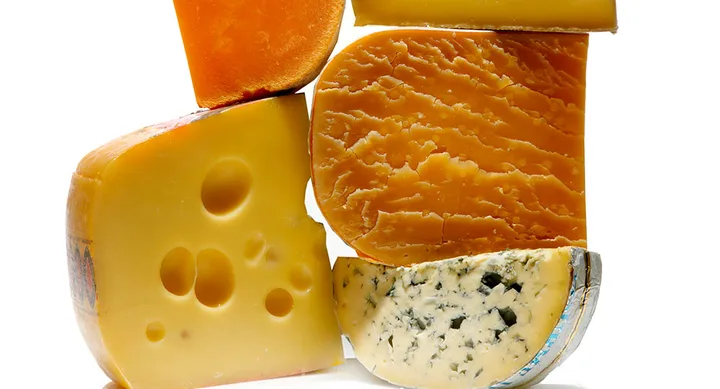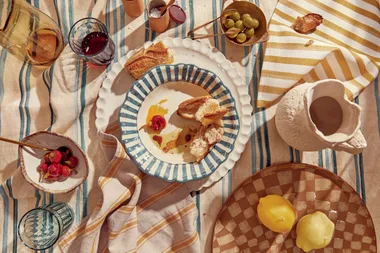CHEESE
A 55g serve of tasty cheese offers around 440mg of calcium; more than 40 per cent of your recommended daily intake, says sports dietitian Chloe McLeod. This culinary crusader also helps protect teeth from acid wear. “Compounds in cheese can stop acid erosion that occurs when you’re drinking coffee and wine,” explains McLeod. Need another excuse to hit the gruyère? According to the Journal Of Applied Microbiology, probiotics (good bacteria) survive cheese-making and the ageing process imposed on hard cheeses, such as cheddar. If weight control is the goal, switch to fetta, says accredited practising dietitian Robbie Clark. While lower in probiotics and calcium (just 180mg per 55g serve), it is also lower in fat and kilojoules.
ROAST TURKEY
Turkey breast is rich in tryptophan, an amino acid that boosts levels of the “happy hormone” serotonin in the brain, and although it has a bad rap because of the extra fat, you can eat turkey skin. “There is more good, monounsaturated fat in turkey skin than saturated fat,” says McLeod. “I wouldn’t suggest eating it with abandon, as being high in fat means high in kilojoules. But if you really like it, enjoy a small amount.” Hallelujah. “Go for an organic, antibiotic-free, pasture-fed bird as it’s going to have larger amounts of omega-3s, which are very good for heart health,” adds Clark.
SALT
If you love salt-rubbed gravalax or margaritas, you’ll love this. A study of 130,000 people in The Lancet found that a diet of too little sodium – less than 1200mg per day – may be just as likely to increase the risk of heart disease as a diet high in sodium. The ideal amount, reports scientists, is 1600mg to 2000mg daily. But your daily intake should be capped at 2300mg (one teaspoon) per day, advises McLeod. “Opt for salt fortified with iodine [iodised salt], a compound that supports thyroid function,” she adds. On-trend Himalayan rock salt or sea salt does contain more trace minerals – such as magnesium and iron – than table salt, “however, it’s in really small quantities, so the benefits are really small,” she adds.
CRANBERRY SAUCE
Cranberries are loaded with antioxidants and can help deter urinary tract infections, but store-bought cranberry sauce also contains 40 per cent sugar, says McLeod. “Most of the packaged cranberry sauces are made with cranberry juice, plus some apple or orange juice – as they’re cheaper than cranberry juice,” she reveals. “I suggest making your own, so you know it contains less sugar and more cranberries.” Use raw honey or maple syrup as sweeteners, offers Clark, as they offer bonus benefits such as antioxidants.
Did you know: Half a cup of cranberries contains only 100 kilojoules and research shows they can also boost the body’s immune system?
If a busy festive season means more takeaway, supercharge your meals with these easy tweaks by accredited practising dietitian Geraldine Georgeou…
1. PAD THAI – Add lean protein, such as prawns or chicken, and request extra vegies.
2. SPAGHETTI BOLOGNESE – Order an entrée size with extra mince and a side of rocket salad.
3. BEEF PHO – Ask that extra steamed greens be added to your soup.
 Getty
Getty









